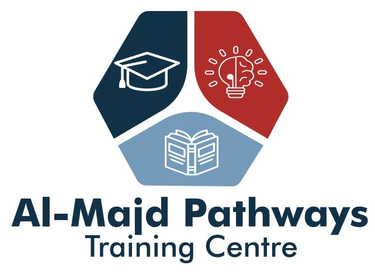
Media Analysis and Online Security Threats
£6800.00£5600.00
Introduction
The Media Analysis and Online Security Threats course aims to equip participants with the necessary skills and knowledge to analyse media content critically and assess potential security threats in the online realm. This course delves into the techniques and tools used to analyse various forms of media, such as news articles, videos, and social media posts, while also exploring the emerging threats and challenges posed by the digital landscape.
Course Objectives:
Media Analysis: Developing critical thinking and analytical skills to evaluate media content, including news articles, videos, and social media posts, to identify biases, misinformation, and propaganda.
Online Security Threats: Understanding the different types of security threats in the online environment, including hacking, data breaches, phishing, and social engineering attacks.
Digital Forensics: Exploring digital forensic techniques and tools used to investigate and analyse digital evidence, including metadata, timestamps, and source verification.
Social Media Analysis: Learning how to analyse social media content, trends, and conversations to gain insights into public opinion, sentiment analysis, and identifying potential security risks.
Disinformation and Fake News: Understanding the impact of disinformation and fake news in the digital age and developing skills to identify and counter false narratives and misinformation campaigns.
Privacy and Data Protection: Examining the importance of privacy and data protection in the digital era, including best practices for safeguarding personal information and mitigating risks.
Cybersecurity Fundamentals: Gaining an understanding of the fundamental concepts and principles of cybersecurity, including network security, encryption, secure communications, and incident response.
Risk Assessment and Mitigation: Learning how to conduct risk assessments and develop mitigation strategies to address potential security vulnerabilities and protect sensitive information.
Ethical Considerations: Discussing the ethical implications of media analysis and online security practices, including issues of privacy, transparency, and responsible use of information.
Course Outline
Day 1: Introduction to Media Analysis & Critical Thinking
Morning Session:
Overview of Media Analysis:
Introduction to the course objectives and structure.
Defining media analysis: understanding biases, misinformation, and propaganda in news articles, videos, and social media.
Tools and techniques for critical media evaluation.
Afternoon Session:
Case Studies in Media Analysis:
Practical exercises on identifying biases and misinformation in different types of media.
Group discussion and review of media content examples.
Key Takeaways:
Foundations of media analysis and critical thinking.
Developing a critical lens for analyzing various media formats.
Day 2: Online Security Threats & Digital Forensics
Morning Session:
Types of Online Security Threats:
Introduction to common online threats: hacking, phishing, data breaches, and social engineering attacks.
Impact of these threats on media consumption and information security.
Afternoon Session:
Introduction to Digital Forensics:
Techniques for analyzing digital evidence.
Understanding metadata, timestamps, and verifying the source of media content.
Hands-on activity: Analyzing digital forensics case studies.
Key Takeaways:
Grasp of the different online security threats.
Familiarity with digital forensics tools for identifying online threats.
Day 3: Social Media Analysis & Disinformation
Morning Session:
Social Media Analysis:
Techniques for analyzing social media content, trends, and conversations.
Sentiment analysis and identifying potential security risks on social platforms.
Afternoon Session:
Disinformation & Fake News:
Understanding the rise of disinformation in the digital age.
Practical exercises in identifying fake news and disinformation campaigns.
Case studies: Countering false narratives and online misinformation.
Key Takeaways:
Ability to analyse social media content and trends.
Skills to recognize and counter disinformation and fake news.
Day 4: Privacy, Data Protection, & Cybersecurity Fundamentals
Morning Session:
Privacy and Data Protection:
Importance of safeguarding personal information.
Best practices for maintaining privacy and protecting data in the digital era.
Afternoon Session:
Cybersecurity Fundamentals:
Overview of key cybersecurity concepts: network security, encryption, secure communications.
Introduction to incident response and preventing online attacks.
Key Takeaways:
Strong understanding of data protection and privacy.
Foundational knowledge of cybersecurity principles.
Day 5: Threat Intelligence, Risk Mitigation, & Ethical Considerations
Morning Session:
Threat Intelligence & Risk Assessment:
Gathering and interpreting threat intelligence to identify potential security threats.
Conducting risk assessments and developing mitigation strategies.
Afternoon Session:
Ethical Considerations in Media Analysis & Online Security:
Discussing the ethical challenges related to media analysis, privacy, and responsible information use.
Final group discussion and presentation of learned skills.
Key Takeaways:
Practical strategies for threat intelligence and risk mitigation.
Awareness of ethical considerations in media and cybersecurity.
Teaching Mode: On-site
Language(s): English
Duration: One Week
Certificate of Completion: Upon successful completion of the course, participants will receive a Certificate of Completion from Al-Majd Pathways Centre (APC).
Get in touch with us today.
Follow
Sign-up for our newsletter
0044 7466410010
©2025 All rights reserved.
